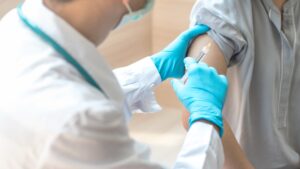
Human Papillomavirus (HPV) is one of the most common sexually transmitted infections globally. It affects both men and women and can lead to various health problems, including genital warts and certain types of cancer. Fortunately, there is a highly effective tool in the fight against HPV-related diseases: the HPV vaccine. This vaccine has been instrumental in preventing HPV infections and reducing the risk of associated cancers, particularly cervical cancer. In this article, we will explore the significance of the HPV vaccine in preventing HPV-related diseases and promoting public health.
Understanding HPV
HPV is a group of viruses that can infect the genital area, as well as the mouth and throat. There are over 200 known types of HPV, and around 40 of them can infect the genital area. These viruses are categorized into low-risk and high-risk types. Low-risk types may cause genital warts, while high-risk types are strongly associated with several cancers, including cervical, anal, and oropharyngeal cancer.
The Importance of Cervical Cancer Prevention
Cervical cancer is one of the most common cancers among women worldwide. It is primarily caused by certain high-risk types of HPV, with HPV16 and HPV18 being the most prevalent ones. Cervical cancer can be deadly, but it is also highly preventable through regular screenings, such as Pap smears, and the HPV vaccine.
HPV Vaccine: An Effective Preventive Measure
The HPV vaccine was developed to protect against the most common high-risk HPV types responsible for cervical and other cancers. Here’s why the HPV vaccine is so vital in preventing these diseases:
- High Efficacy: Clinical trials have shown that the HPV vaccine is highly effective at preventing infection with the targeted HPV types. In particular, the vaccines provide strong protection against HPV16 and HPV18, which are responsible for a significant proportion of cervical cancers.
- Herd Immunity: Widespread HPV vaccination not only protects vaccinated individuals but also contributes to herd immunity. When a large portion of the population is vaccinated, the spread of the virus is significantly reduced, benefiting even those who cannot receive the vaccine due to medical reasons.
- Long-lasting Protection: The HPV vaccine provides long-lasting protection against the targeted HPV types. This means that individuals who receive the recommended doses during adolescence can expect continued protection into adulthood, reducing their lifetime risk of HPV-related diseases.
- Preventing Cervical Cancer: The HPV vaccine is a critical tool in the fight against cervical cancer. By preventing HPV infection, it significantly reduces the risk of developing cervical cancer. Regular screenings (e.g., Pap smears) in conjunction with vaccination can further enhance cervical cancer prevention efforts.
- Safety: Extensive research and monitoring have shown that the HPV vaccine is safe. Like any vaccine, it may have mild side effects, but the benefits in terms of preventing HPV-related diseases far outweigh the risks.
The HPV vaccine is a remarkable medical advancement that plays a crucial role in preventing HPV-related diseases, especially cervical cancer. By getting vaccinated and promoting widespread vaccination, individuals and communities can significantly reduce the burden of HPV infections and related cancers. It is essential for healthcare providers, policymakers, and the public to work together to ensure that this vaccine reaches those who need it, ultimately contributing to improved public health and the well-being of future generations.


